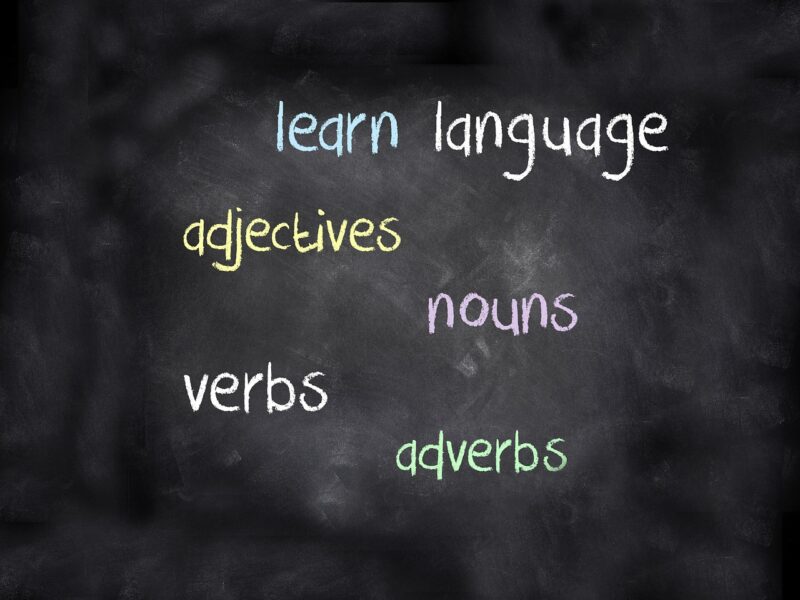
Learning a new language can be one of the most rewarding experiences of your life, opening doors to new cultures, traditions, and opportunities that you never thought possible. However, diving into a language can seem daunting, especially if you’re starting from scratch. In this comprehensive guide, we will explore effective strategies, resources, and tips for learning a new language efficiently, all tailored for beginners.
1. Understanding Your Motivation
Before you embark on your language learning journey, take a moment to reflect on your motivation. Understanding why you want to learn a new language can significantly impact your success. Are you learning for travel, work, personal growth, or a passion for culture? Identifying your motivation helps to set clear goals and maintain your enthusiasm throughout the process.
Key Motivations to Consider:
– Travel: Communicating with locals while traveling can enhance your experiences.
– Career Opportunities: Bilingual individuals often have a competitive edge in the job market.
– Cultural Appreciation: Learning a language can deepen your understanding of its associated culture.
– Personal Growth: Challenge yourself and expand your cognitive skills.
2. Choose the Right Language
Choosing a language to learn is a crucial first step. While gut feeling may play a role, consider practical factors such as:
– Availability of Resources: Some languages have more resources (like apps, books, online courses) than others.
– Language Similarity: If you speak a language that shares roots with your target language (such as Spanish for Italian learners), it might be easier to pick up.
– Personal Interest: A language tied to a culture, media, or community you love can keep you engaged.
3. Set Realistic and Achievable Goals
Setting SMART (Specific, Measurable, Achievable, Relevant, Time-bound) goals is essential for anyone starting a new language:
– Specific: Instead of just saying, “I want to learn French,” specify your goal—”I want to hold a basic conversation in French.”
– Measurable: Track progress by assigning benchmarks; e.g., learning 50 new vocabulary words a month.
– Achievable: Set a pace that fits your lifestyle—don’t overwhelm yourself.
– Relevant: Ensure that your goals align with your motivation.
– Time-bound: Set deadlines to keep yourself accountable.
4. Find the Right Resources
Today’s digital age offers numerous resources for language learners. Here are a few you should consider:
– Apps: Duolingo, Babbel, and Memrise are great for achieving daily practice.
– Online Courses: Websites like Coursera and Udemy offer beginner-friendly courses in numerous languages.
– YouTube Channels: Channels like “Learn French with Alexa” or “Spanishpod101” provide immersive content.
– Podcasts: Language learning podcasts can help with listening skills on the go.
5. Develop a Routine
Creating a study routine is vital to embedding language learning into your daily life. Here’s how to develop one:
– Consistency: Aim for shorter, daily practice sessions (15-30 minutes) rather than sporadic marathon sessions.
– Diverse Methods: Use various methods: vocabulary review, grammar exercises, listening practice, and speaking.
– Stay Flexible: Adjust your routine as you go; find what works best for you without strict rules that feel burdensome.
6. Immerse Yourself in the Language
Language immersion is one of the most effective techniques for mastering a new language:
– Media Consumption: Watch movies, listen to music, and read books or news articles in the target language.
– Change Language Settings: Change your device language settings to the language you’re learning.
– Practice with Native Speakers: Use language-exchange platforms like Tandem or HelloTalk to converse with native speakers.
7. Practice Speaking Regularly
Practicing speaking is crucial and often neglected by beginners:
– Speak to Yourself: Practice speaking out loud, even if you’re just speaking to yourself.
– Mimicry: Listen to native speakers and try to imitate their pronunciation and intonation.
– Join Language Groups: Find local or online language groups to practice conversational skills.
8. Use Flashcards Effectively
Flashcards are a powerful tool for memorizing vocabulary:
– Apps: Use apps like Anki or Quizlet to create digital flashcards.
– Physical Flashcards: Write words and phrases on physical flashcards for tactile learning.
– Daily Review: Incorporate flashcard review into your daily agenda. This helps reinforce what you’ve learned and aids retention.
9. Be Patient and Persistent
Language learning is a marathon, not a sprint. Embrace the journey:
– Celebrate Progress: Take time to celebrate small victories along the way, whether it’s having a successful conversation or understanding a song.
– Learn from Mistakes: Don’t shy away from making mistakes—it’s one of the best ways to learn.
– Stay Motivated: If you hit a plateau, remind yourself why you started and reassess your goals.
10. The Power of Community
Finally, joining a community can significantly enhance your learning experience:
– Online Forums: Engage with language learning forums like Reddit’s r/languagelearning or Duolingo’s forums for shared tips and support.
– Study Groups: Create or join study groups for accountability and encouragement.
– Social Media: Follow language learning influencers on platforms like Instagram for tips and inspiration.
Conclusion
Starting to learn a new language doesn’t have to be overwhelming. By understanding your motivations, setting achievable goals, finding the right resources, and immersing yourself in the language, you can develop effective learning habits that will lead you to success. Be patient with yourself, embrace mistakes, and enjoy the journey ahead. Before you know it, you’ll be conversing fluently in your new language!
If you’re ready to dive into learning a new language, follow this guide to kickstart your adventure and unlock new worlds of communication.








